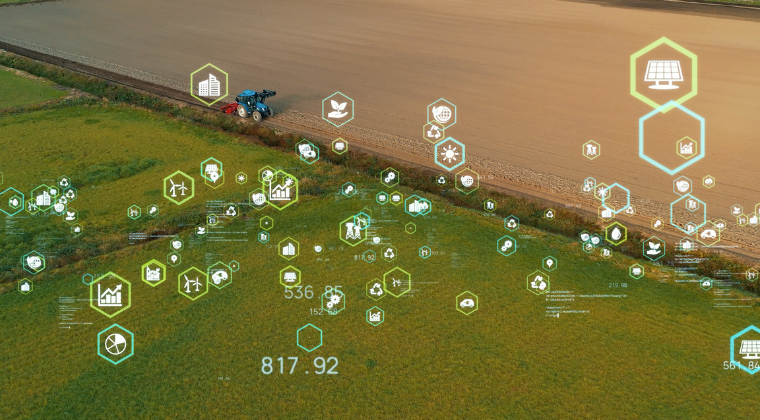
Introduction
In modern agriculture, drones have become pivotal tools, gaining popularity for their transformative impact. These unmanned aerial vehicles play a crucial role in maximising food production by accurately gathering information on land use, productivity, and sustainability.
Integrated into various food production techniques such as target crop spraying, crop yield monitoring, and disease detection, drones offer unprecedented precision and efficiency. Their ability to survey vast farmlands with detail enables data-driven decisions, optimising resource allocation and enhancing overall productivity.
As we face growing populations, climate uncertainties, and evolving agricultural demands, drones signify a technological breakthrough redefining how we sustain global food stocks. In this era of innovation, drones in agriculture are not mere gadgets but heralds of a more resilient, sustainable, and technologically advanced future for the sector.
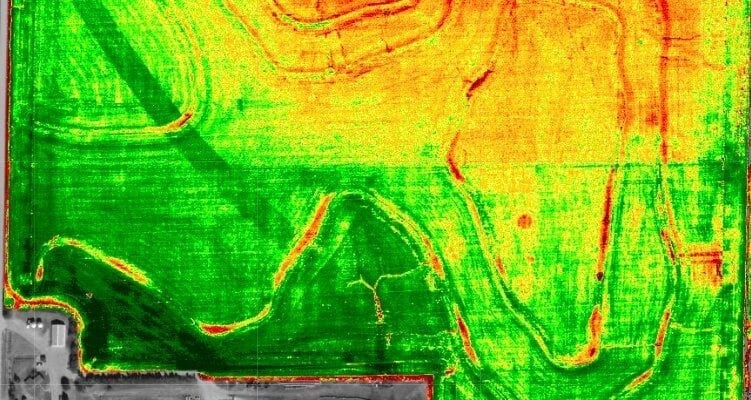
Crop Health and Monitoring
Drones have revolutionised agriculture by offering a myriad of advantages in crop management. One of their key contributions lies in their ability to efficiently analyse crop health and yield. Equipped with high-resolution cameras and advanced imaging technologies, drones provide farmers with a bird’s-eye view of their fields, enabling them to monitor crop conditions with unprecedented detail.
The use of NDVI (Normalized Difference Vegetation Index) sensor technology further enhances this capability. NDVI sensors measure the health and vitality of crops by analysing the reflection of different light wavelengths, identifying areas of stress or disease.
By employing NDVI data, farmers can make informed decisions on irrigation, fertilisation, and pest control, optimising resource allocation and improving overall crop yield. Drones not only streamline the monitoring process but also contribute to sustainable and precision agriculture, reducing environmental impact while maximising productivity.
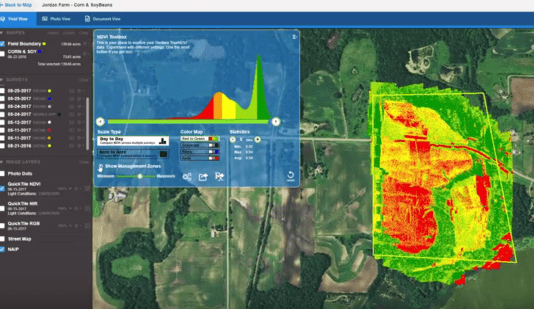
Advanced Analytics and Prescriptions
Drones in agriculture have revolutionised traditional farming practices by offering precise and data-driven solutions for optimising crop health and increasing yields. These unmanned aerial vehicles equipped with advanced sensors and imaging technologies capture detailed information about crop conditions, such as moisture levels, nutrient deficiencies, and pest infestations.
The real innovation lies in their ability to process this data and generate crop health prescriptions, providing farmers with targeted recommendations for improving cultivation outcomes. These prescriptions may include specific fertilisation plans, irrigation adjustments, and pest control measures tailored to the unique needs of individual crops and fields.
By leveraging these prescriptions, farmers can implement precision agriculture techniques, ensuring resources are utilised efficiently, reducing environmental impact, and ultimately enhancing overall crop health and yield.
This integration of technology not only fosters sustainable farming practices but also empowers farmers to make informed decisions that contribute to a more resilient and productive agricultural system.
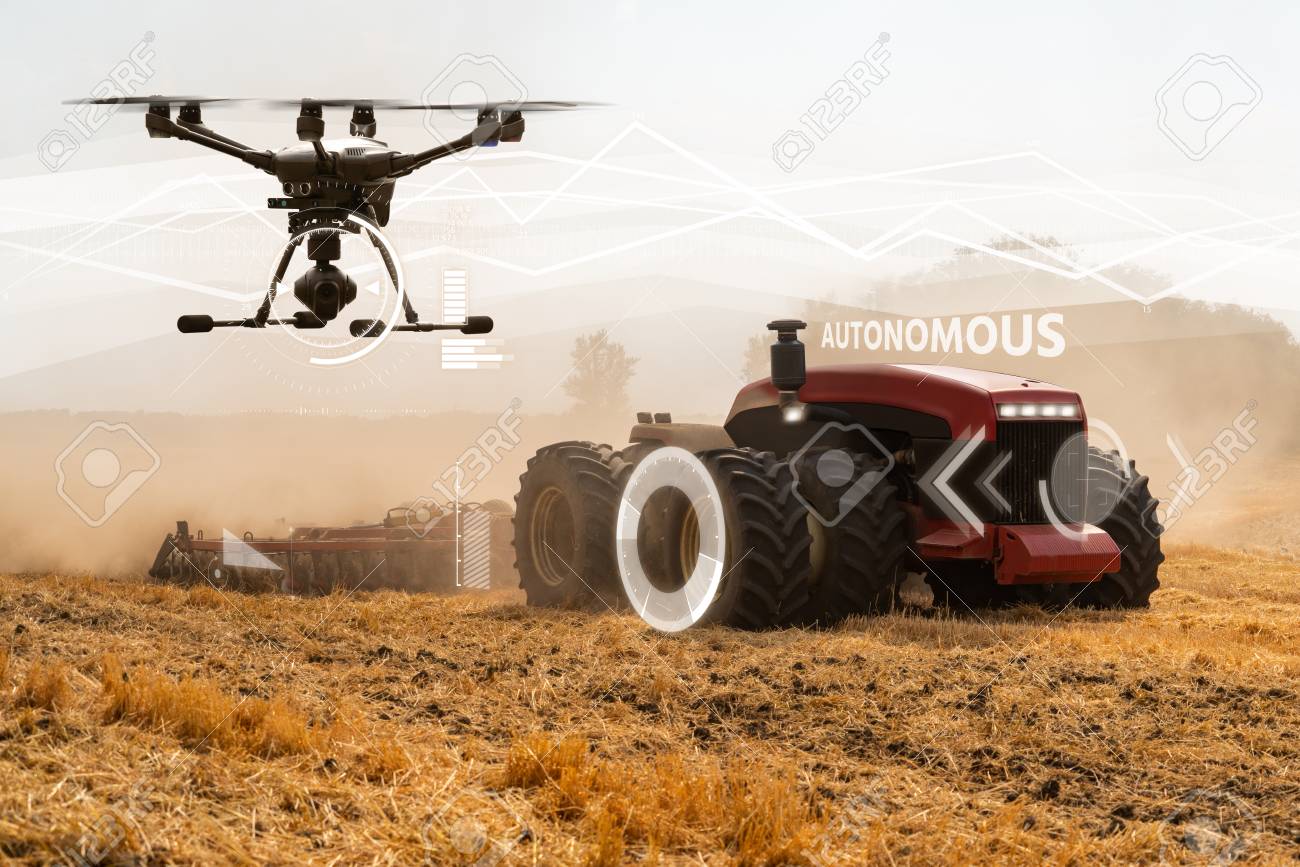
Precision Agriculture
In the era of precision agriculture, the integration of farm machinery with drone technology takes a leap forward in operational efficiency. Farmers can seamlessly harness the power of real-time data collected by drones equipped with advanced sensors and cameras.
With a simple process, farmers can plug a data card into their tractors, enabling them to precisely follow the guidance provided by the drone-generated data. This integration allows for a targeted and site-specific application of pesticides, nutrients, and water, reducing the reliance on whole-field spraying methods.
By aligning tractor operations with the insights derived from drone data, farmers can optimise their resource usage, enhance crop yields, and, importantly, contribute to environmental sustainability by reducing overall carbon emissions associated with traditional farming practices. This technological synergy empowers farmers to make data-driven decisions, promoting a more efficient and eco-friendly approach to agriculture.
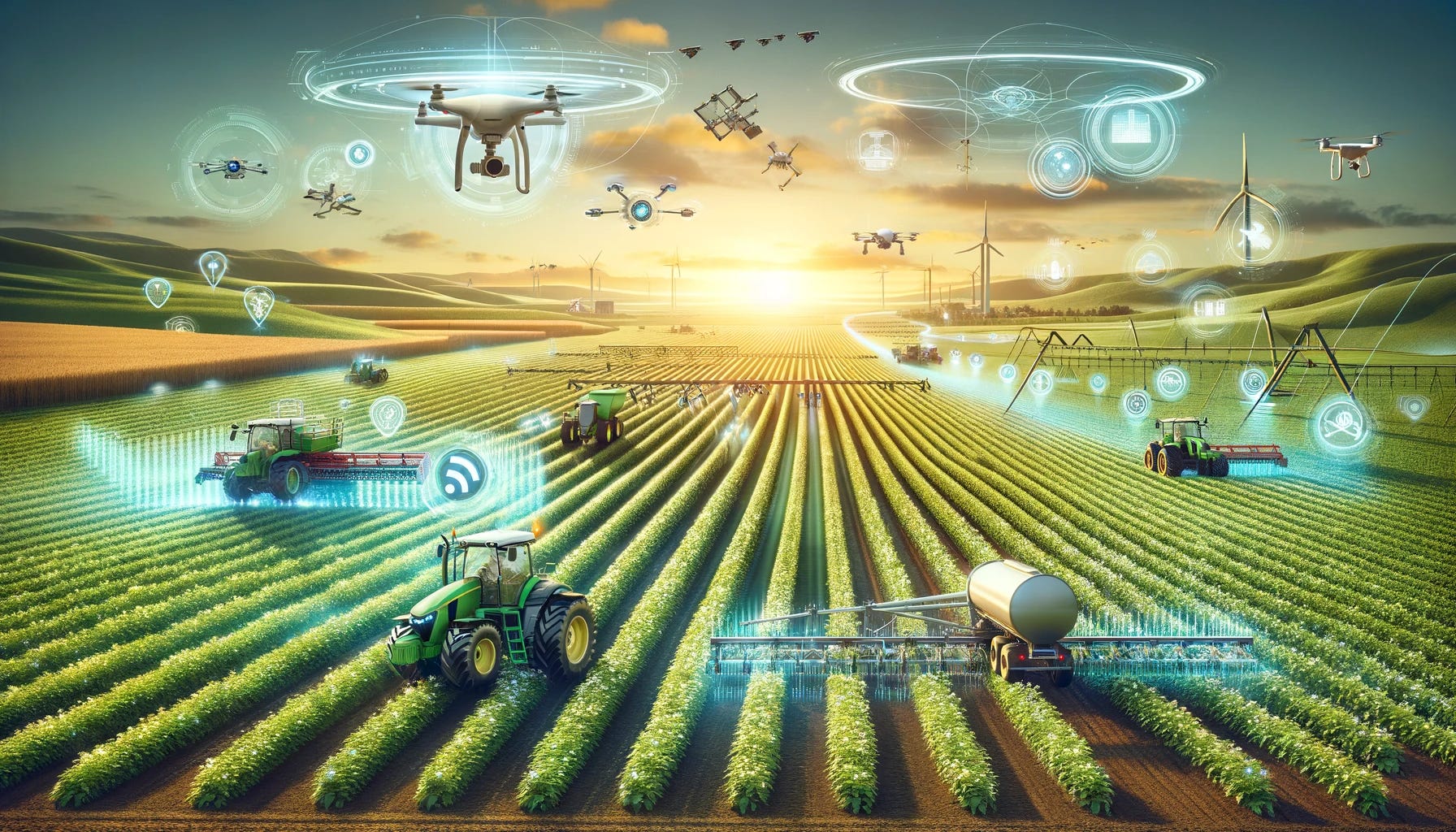
The Future of Farming and Feeding the Planet
The future of farming is poised for a technological revolution, with advancements such as drones, autonomous farm machinery, and precision agriculture leading the way. These innovations are transforming traditional farming practices, enhancing efficiency, and promoting sustainability.
Drones equipped with sensors can monitor crop health and identify areas in need of attention, while autonomous machinery enables precise and timely field operations. The re-development of fallow land, previously restricted by EU regulations, has become a priority, and funding is directed towards rejuvenating these underutilised resources.
To ensure the success of this agricultural evolution, there is a crucial need to train the next generation of farmers in harnessing technology effectively. Education programs and training initiatives should equip farmers with the skills to operate and manage these advanced tools, fostering a new breed of agriculturists who can navigate the intersection of tradition and technology.
By empowering farmers with knowledge and tools, the agriculture industry can achieve greater sustainability, productivity, and resilience in the face of evolving global challenges.
